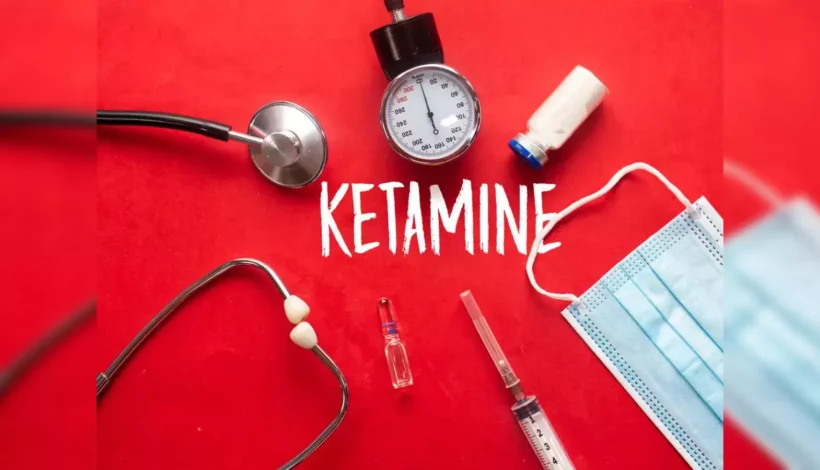In my previous blog post, I addressed the misconceptions surrounding Matthew Perry’s tragic passing, particularly the misleading narratives around his use of ketamine. While ketamine has been unfairly targeted as a cause of his death, the real story goes deeper, uncovering a troubling pattern of manipulation and exploitation by those who should have been caring for him. Now, with recent arrests shedding light on the unethical practices that contributed to his untimely demise, it’s crucial to delve further into what really happened and who is truly responsible.
Revisiting the Misuse of Ketamine in Perry’s Case
As we know, ketamine is a powerful therapeutic tool that has shown immense potential for treating various mental health conditions when used responsibly in a clinical setting. Unfortunately, Matthew Perry did not receive the benefits of such ethical care. Instead, he found himself surrounded by individuals who misused this medicine for their gain, prioritizing profit over his well-being.
Recent reports have confirmed that Perry was not only overcharged for ketamine—often paying thousands for a substance that costs a fraction of that amount—but also administered doses far beyond what is considered safe or therapeutic in a psychiatric context. These actions were not the result of medical oversight but deliberate decisions by those around him to exploit his vulnerability for financial gain.
The Five Arrests: Unraveling the Network of Exploitation
The recent arrests of five individuals connected to Perry’s death have brought more details to light. Among those arrested is Perry’s doctor, Maurice L. Morris, who has been accused of providing Perry with access to large quantities of ketamine and allowing his assistant to administer the drug without proper medical supervision. This assistant, also among those arrested, was reportedly involved in giving Perry a dangerously high dose of ketamine at his request—a dose far exceeding what is typically used in therapeutic settings.
Other individuals arrested include those involved in illegally supplying ketamine and other medications to Perry, often operating outside of any legitimate clinical practice. This group, which included both licensed and unlicensed practitioners, facilitated Perry’s addiction rather than providing him with the structured support he desperately needed. Their actions reflect a broader issue within the realm of addiction treatment, where unscrupulous providers exploit vulnerable individuals under the guise of medical care.
Understanding the True Cause of Perry’s Death
It is crucial to clarify that Matthew Perry’s death was not directly caused by ketamine itself. As I mentioned in my previous blog, ketamine does not lead to death when administered properly, even at anesthetic doses. Instead, the real danger comes from the lack of proper care and supervision. Perry’s death occurred when he was left alone in a hot tub under the influence of a large dose of ketamine—an environment that should never have been allowed given the circumstances.
Had Perry been properly supervised by trained professionals, the outcome could have been very different. The individuals responsible for his care not only failed to provide the necessary oversight but also actively contributed to the circumstances that led to his tragic end. This was not just negligence; it was a fundamental betrayal of the trust that Perry placed in them, trusting that they had his best interests at heart.
The Broader Implications for Ketamine-Assisted Therapy
Perry’s death should prompt a serious discussion about the ethical standards that must govern ketamine therapy, especially for those with a history of substance abuse. It is a potent medicine that, when misused, can lead to serious consequences, as tragically demonstrated in this case. But it’s important to recognize that the problem lies not with ketamine itself, but with how it was administered, by whom, and under what circumstances.
Ethical use of ketamine requires careful consideration, proper dosing, and constant supervision in a controlled setting. It is vital for those seeking ketamine therapy to ensure they are working with qualified professionals who adhere to these standards. Perry’s case serves as a warning of what can happen when these safeguards are not in place, and when vulnerable individuals are exploited rather than supported.
Moving Forward: Advocating for Ethical Standards in Ketamine Therapy
Matthew Perry’s death is a painful reminder of the importance of maintaining rigorous ethical standards in medical practice. As a ketamine-assisted psychotherapist, I feel it is crucial to continue advocating for responsible and ethical use of ketamine, especially in treating individuals with complex histories of addiction and mental health struggles.
It is not enough to simply offer ketamine; we must ensure that it is administered in a manner that prioritizes patient safety, with clear protocols, thorough assessments, and a commitment to ethical care. This means rejecting the practices of those who would exploit patients for profit and instead embracing a model of care that is compassionate, patient-centered, and grounded in scientific evidence.
More Responsible Care is Needed in KAP Treatment
Matthew Perry’s passing should not be in vain. His story must serve as a catalyst for change, prompting both professionals and patients to demand higher standards of care and accountability in the use of ketamine and other powerful medications. We must remember that while ketamine holds great promise as a therapeutic tool, it is only safe and effective when used responsibly and ethically.
If you or someone you know is considering ketamine therapy, I urge you to seek out practitioners who prioritize ethical standards and patient safety. Let us honor Matthew Perry’s memory by committing to the responsible use of ketamine, ensuring that no one else suffers due to the negligence or greed of others.
For those interested in learning more about ethical ketamine use or seeking guidance on finding a qualified provider, please feel free to reach out to my clinic. Together, we can work to create a safer, more compassionate environment for those seeking healing.





